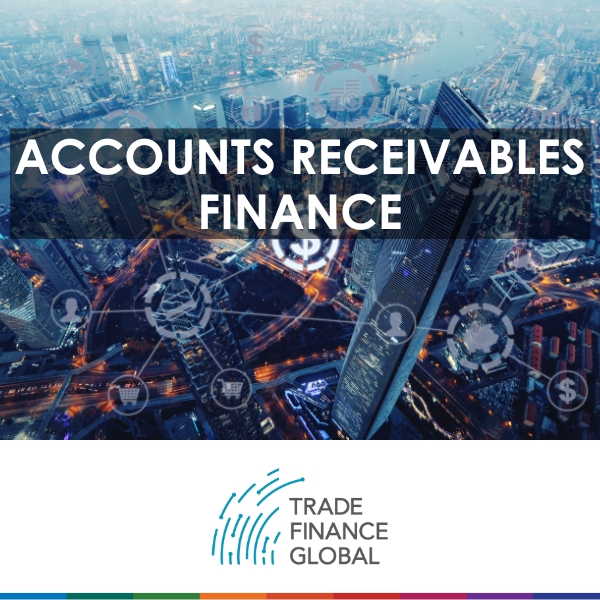Receivables Account – What is Accounts Receivables Finance?

The above Supply Chain Finance techniques have been defined by the Global Supply Chain Finance Forum (BAFT, EBA, FCI, ICC and ITFA)

Access trade, receivables and supply chain finance
We assist companies to access trade and receivables finance through our relationships with 270+ banks, funds and alternative finance houses.
Get startedContent
A receivable is any incoming money or something of tangible value that is owed to a company in the future. It is sometimes referred to as an invoice as this is the promise of future finance into a company. Accounts receivables financing is essentially the process of raising cash against your book’s debts, so an asset finance product, rather than ‘lending’. Accounts receivables finance require companies to have receivables or book debts. As funds will not be paid immediately, this type of finance can help unlock funds.
TFG Explainer Video: Receivables Finance Explained, by Erik Timmermans and John Brehcist, WOA
How do companies manage receivables?
Receivables or future incoming funds are usually managed depending on the cash flows of the company and the funding cycles. The management of the company will look at the working capital of the company and most importantly the time of receipt in relation to the receivables. In the event that the receivable is long dated and cash flows are poor then a company may seek receivables finance.
How does accounts receivables finance work?
The way that receivables finance usually works is that there will be credit terms provided to the end buyer.
An example of this could be an invoice that is sent out and is payable in 30, 60 or 90 days. On the basis of this; an invoice or receivables finance option may be used. The funder will typically pay between 70-95% of the invoice face value to the customer and the receivable or invoice will be assigned to the funder. The discounting of the receivable or invoice may be done on a confidential or non-confidential basis. The difference between confidential or non-confidential funding is that the buyer will know or not know that a funder is being used. The difference is usually that a dedicated account will be used or set up for the receivable to be paid into and may also be in the borrower’s name, but will be charged in favour of the funder.
Confidential receivables finance may be used if the borrower does not want the customer to know that they are using a lender. The reason for this may be due to them not wanting to be perceived as being a financially weaker company; as they are disclosing that they have a finance facility. It may also be because the end purchaser is not able to agree to an assignment over the receivable due to policy reasons.
In the event that an invoice is payable in 30 days and a funder provides finance against 80% of the invoice to the borrower; then the end buyer will acknowledge an assignment over that invoice or receivable. This is so that the recipient of the funds when paid, will be the funder.
We speak about a receivables account as being the account that the funds from the end buyer are paid into, when a receivable or invoice is financed. As mentioned above, the funders name may be disclosed or undisclosed.
Accounts Receivables Finance: Step by Step Process
- Invoice is sent out by the company, payable in 30-90 days
- Invoice or receivables finance line can be opened for that company
- Funder might pay between 70-95% of the invoice value and the ownership of the invoice will transfer to the funder
- Depending on whether the discounting of the receivable is done confidentially or non-confidentially, once the final payment is made, the funder releases the remaining cash to the company less fees
What are the benefits of Accounts Receivables Finance?
Accounts Receivables Finance facilities can be incredibly useful short term facilities for SMEs and corporates to consolidate debtor books and release cash into the business without having to wait until end buyers pay for invoices.
Although receivables are more expensive than bank loans to finance, a facility can be put in place fairly quickly. Many accounts receivables finance solutions can provide early payment in as little as 24 hours, and Trade Finance Global’s expert team can help find the most appropriate form of receivables finance, no matter how big or small the requirement is.
- Accounts receivable finance can be flexible and diverse to tailor the most appropriate cash flow solution for a business
- The facility will directly fund the debtor book or outstanding invoices, rather than an overdraft facility or bank loan that may require interest repayments on the entire amount borrowed
- Clients and end customers needn’t know that you have a financing facility in place
- Up to 95% of the total receivables accounts can be financed
- To qualify for accounts receivables finance, the creditworthiness of the end customer is assessed, which bears more weight than the creditworthiness of the company applying
Our trade finance partners
- Supply Chain and Payables Finance Resources
- All Payables Finance Topics
- Podcasts
- Videos
- Conferences



















